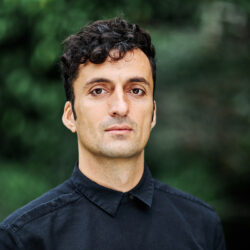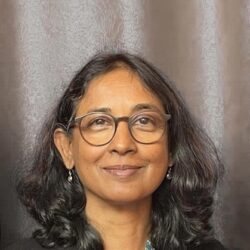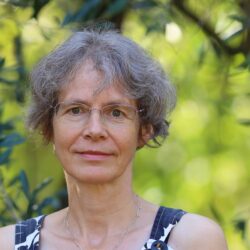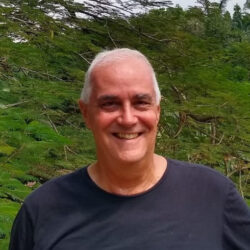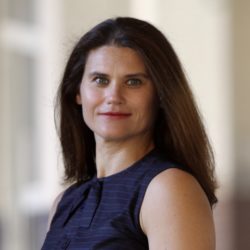Mini-conferences consist of a minimum of 3 panels which are featured as a separate stream in the program. Submissions are open to all scholars on the basis of an extended abstract (1000 words). If your abstract is accepted, all mini-conferences recommend that accepted participants submit full papers before the conference itself. If a paper proposal cannot be accommodated within a mini-conference, organizers will forward it to the most appropriate research network as a regular submission. To submit your abstract to a mini-conference, follow the regular process detailed here.
MC01: Elites and Power Structures
detailed info Christoph Houman Ellersgaard
Christoph Houman Ellersgaard

Christoph Houman Ellersgaard is a Danish sociologist working on elite networks and the role played by different elite constellation in various political economies. He forms part of the World Elite Database team and is currently working on developing theoretical and empirical tools in the comparative study of elites.
 Elisa Reis
Elisa Reis

Elisa Reis is Ph.D in Political Science (MIT,1980), Professor of Political Sociology at the Universidade Federal do Rio de Janeiro (UFRJ) Brazil, and chair of the Interdisciplinary Research Center for the Study of Social Inequality (NIED). She is former vice-president of the International Science Council and of the Brazilian Academy of Sciences. She has received scholarships, from the Brazilian National Research Council (CNPq.), the Research Council of the State of Rio de Janeiro (FAPERJ), The Fulbright Commission, the Italian Consiglio Nazionale delle Ricerche, to carry out research in a number of countries. Her major research interests are elite perceptions of poverty and inequality; current transformations of nation-states; and the evolving patterns of interaction between state, market, and civil society. She received the Life Career Prize of the Brazilian Sociological Association in 2017, and the Prize for Excellence in Research of the Brazilian National Association for the Social Sciences (ANPOCS) in 2021.
 Thierry Rossier
Thierry Rossier

Thierry Rossier is Senior Researcher at the Department of Management at the University of Fribourg and Visiting Fellow at the Department of Sociology at London School of Economics. His research interests focus on inequality, elites, gender, class, power, economics and science. He co-edited the “Power and Influence of Economists. Contributions to the Social Studies of Economics” Routledge book (2021), together with Jens Maesse, Stephan Pühringer and Pierre Benz. His works are featured in The British Journal of Sociology, Global Networks, Higher Education, Minerva, Social Science Information, the European Journal of Sociology and the Revue Française de Sociologie.
 Elisa Klüger
Elisa Klüger

Elisa Klüger is currently a Marie Skłodowska-Curie postdoctoral researcher at the Laboratoire d’Économie et de Sociologie du Travail (LEST) and an associated researcher at the Brazilian Center of Analysis and Planning (CEBRAP) nucleus of international studies. She obtained her Ph.D. in Sociology at the University of São Paulo (2016), has been a researcher in CEBRAP’s international postdoctoral program (2017-2021) and visiting researcher at the Universities of Princeton (2018-2019), California – Berkeley (2014-2015), and Picardie Jules Verne (2012-2013).
 Robyn Klingler-Vidra
Robyn Klingler-Vidra
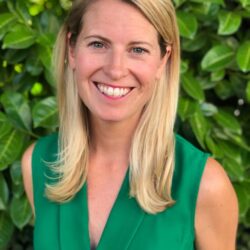
Dr Robyn Klingler-Vidra is Reader in Entrepreneurship and Sustainability and Associate Dean for Global Engagement at King’s Business School. She is the author of The Venture Capital State: The Silicon Valley Model in East Asia (Cornell University Press, 2018) and Inclusive Innovation (with Alex Glennie and Courtney Savie Lawrence, Routledge, 2022). Her research focuses on entrepreneurship, innovation, sustainability, and venture capital and has been published in leading peer-reviewed journals, including International Affairs, International Studies Quarterly, New Political Economy and Regulation & Governance. She is the academic co-lead of Carrots & Sticks, the world’s most comprehensive database of corporate sustainability policies. Robyn obtained her BA in Political Science at the University of Michigan and her MSc and PhD in International Political Economy from the London School of Economics and Political Science (LSE). She is a Senior Fellow of the Higher Education Academy.
 Bruno Cousin
Bruno Cousin

Bruno Cousin is an FNSP associate professor of sociology at Sciences Po, in Paris, where he is affiliated with the Centre for European Studies and Comparative Politics and the research program of the Urban School. His research interests often lie at the intersection of cultural sociology and the sociology of inequalities. He coauthored Ce que les riches pensent des pauvres (Seuil, 2017) and is currently completing several research projects on economic elites’ social capital, their forms and institutions of sociability, and their segregative residential behaviors.
 André Vereta-Nahoum
André Vereta-Nahoum
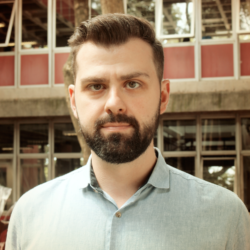
André Vereta-Nahoum is professor of Sociology at the University of São Paulo, associate researcher at Cebrap (Brazilian Center for Analysis and Planning), and at Nucec (
 Kevin Young
Kevin Young

Kevin L Young Kevin L Young is Associate Professor in the Department of Economics at the University of Massachusetts Amherst. Kevin’s research focuses on the international political economy of finance and financial regulation, business power and interest group lobbying, and elite networks. He is currently working on a large project on race and gender dynamics among global elite networks, especially among leaderships of large corporations, international organizations and think tanks. Kevin’s work has featured in a variety of journals, including Review of International Political Economy, Global Networks, Journal of European Public Policy, Public Administration, Regulation and Governance, International Studies Quarterly, Socio-Economic Review and others. He is the author (with Thomas Hale and David Held) of Gridlock: Why Global Cooperation is Failing When We Need it Most (Polity, 2013). Kevin was educated in Canada, Germany and the UK, and obtained a Ph.D. from The London School of Economics (LSE) in 2010. He has been a SASE member since 2015 and has been a longtime Steering Committee member of the Progressive Economics Forum, Canada, and is on the incoming Editorial Board of Review of International Political Economy.
MC01 accepts abstracts of approximately 1000 words (deadline December 16 2024). If your abstract is accepted, you will be asked (but not required) to submit a full paper prior to the conference in Montreal (9-12 July 2025). MC01 organizers will be in touch about deadlines and specifications.
MC01 will organize one virtual session during the virtual conference days (1-3 July 2025), as well as one hybrid session during the on-site conference (9-12 July 2025).
Submissions can be made through the usual process, details here: https://sase.org/event/2025-montreal/#submission-guidelines
Call for papers
Elites play a crucial role in creating the boundaries that define commitments to and practices of inclusive solidarity, both within dominated non-elite groups and in the solidarity that underpins ruling class cohesiveness and collective action. Current social transformations, ruptures, and the breakdown of the neoliberal economic order require attention to how elites, as designers and operators of this order, are promoting or responding to the disruptions caused by climate change, economic crises, wealth inequality, conflicts, pandemics, digitalization, and technological developments, despite their own role in creating and accelerating these transformations.
As growth models and the legitimacy behind elite coalitions are challenged, new elite constellations and their responses to legitimacy crises need to be charted. Therefore, different ideological projects of various elites must still be studied to understand their contributions to the persistence of neoliberalism and the boundary conditions for inclusive solidarities in wider society.
In short, to address the most pressing problems of the current socio-economic order, we need to learn more about the elites who play a pivotal role in it. Our mini-conference focuses on the groups at the top of power structures in different societies, who, in many ways, provoke and are subject to societal emotions and hold a central position in deciding which technological solutions to mitigate challenges like climate change become part of wider political-economic projects. By gathering scholars interested in power elites across different societies, we aim to enhance the understanding of elites’ roles in shaping the meso- and micro-level foundations of the current socio-economic order.
This mini-conference invites scholars to contribute to discussions on how elites compete and cooperate to influence this order, react to pressures and demands from below, articulate different publics in support of their projects, and address major societal challenges. Specifically, we seek new scholarship on power elites—groups positioned at the top of key institutional orders (Mills 1956, Bourdieu 1989). We encourage contributions that investigate elites governing the economy, whether through positions in large corporations, think tanks, or institutions shaping the rules of the game, such as governmental agencies and regulatory bodies.
The study of elites is already a buoyant research area. Fifteen years ago, Savage and Williams (2008) stated that elites had been “forgotten in the social sciences.” Yet since then, a vast literature has emerged on economic, professional, and cultural elites, and their intersections in various national settings. This research employs a variety of methods and data collection techniques, such as prosopographies, archival data on taxes and ownership, analysis of elite networks and interlocks, geometric data analysis of elite groups, ethnography of elites, elite interviews, and textual analysis of elite discourses. However, much of this literature remains focused on specific cases, often limited to the national level or restricted to the Global North. While this field has become a “rich and fast-growing terrain,” it still “gives us little capacity to make sense of the ways in which elites are influencing our world” (Cousin et al., 2018: 226).
Therefore, the study of elites requires increased methodological attention on how to map power relations and further develop the above-mentioned methodological approaches. Large-scale comparative work on elites has surprisingly slowed since the early 1990s (Higley, Hoffmann-Lange, Kadushin & Moore 1991), with the exception of research on corporate interlocks (e.g., Heemskerk et al. 2013, Cárdenas 2012). This gap in research is surprising, given that many heterodox economic perspectives offer productive ways to theorize how elites operate within organizations, how status is reproduced, and how elites connect with one another. The availability of large new datasets and the development of new qualitative and quantitative methods make it possible to integrate and cross-fertilize different approaches.
We need to develop both theoretical frameworks and methodologies that allow for meaningful comparisons to enable elite research to engage with broader socio-economic scholarship. This includes linking heterodox economics to the study of elites, examining gender, race, and ethnicity, and employing innovative methodologies to study elites and elite power.
The research questions relevant to understanding elites’ roles in the current socio-economic order are numerous. Key questions include:
- Are power elites becoming more integrated or fragmented?
- How do elites interact with experts and engage with expertise through think tanks or other avenues to construct persuasive narratives?
- How do social institutions such as race and ethnicity function among elites?
- How can we map the relationships between established power elites and new political forces like anti-establishment parties?
- How do elites in the Global South and North interact?
- Where do elites assemble their projects, and how do they mobilize social support?
- How do elites defend against attacks on their legitimacy and privileges?
- How do economic elites mitigate collective risks?
- What role do expert elites and the devices they promote play in the politics, emotions, and technologies of government?
- What are the frictions between expert and non-expert elites?
- How does elite sociability affect neoliberalism?
- What cleavages exist within elites concerning neoliberalism?
- How do economic elites envision the future of corporate power?
- What are the methodological challenges in studying elite backgrounds and biographies?
- How can elite biographical datasets be best analyzed, shared, and compared?
This SASE mini-conference aims to open the dialogue on these issues by inviting scholars to discuss and engage with power elite research. The goal is to build a stronger comparative framework with deeper linkages to other fields in political economy, economic sociology, and related areas. We encourage contributions from adjacent fields, such as work on expertise, intellectuals, and advocacy. Participants are expected to present theoretical and empirical work on power elites while positioning their research in a comparative framework to grasp how elite constellations form national and international power structures. This includes addressing the relationship between elites and rising inequality, political discontent, and adapting to a more ecologically sustainable economy.
Finally, we hope this mini-conference will foster discussions on the broader scope of elite research, addressing questions raised by classical traditions such as Marx, Weber, Mills, or Bourdieu. We also aim to explore contemporary contributions on democracy, technocracy, and technoscientific capitalism. Ultimately, we hope these reflections will help lay the groundwork for the World Elite Database project (see Savage & Hjellbrekke 2021).
MC02: Extending the Debate on Craft: Work, Precarity, and Organising in Artisanal Industries
detailed info Benjamin Anderson
Benjamin Anderson

Benjamin Anderson is Ad Astra Fellow and Assistant Professor of Creative & Cultural Industries at University College Dublin. His research concerns the working conditions, workplace cultures and potentials for worker organising in craft and cultural industries. He is also interested in the often ignored segments of the global logistics workforce, particularly locally- and regionally-based marine workers. His work can be found in Labour/Le Travail, the Global Labour Journal, TOPIA: Canadian Journal of Cultural Studies and elsewhere. He splits his time between Dublin and Vancouver.
 Alessandro Gerosa
Alessandro Gerosa
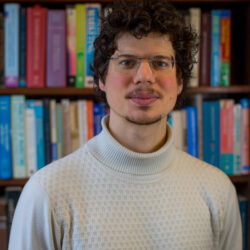
Alessandro Gerosa is Assistant Professor in Cultural Sociology at the University of Milan. He is the author of The Hipster Economy and various academic publications. His research contributes to a better understanding of how people seek authentic and meaningful lives in late modern capitalism. His main work deals with the resurgence of artisanal forms of production and consumption, unpacking the tensions involved in this pursuit and the relationship between individual, collective, and structural dimensions. Last but not least, he also researches digital cultures.
MC02 accepts abstracts of approximately 1000 words (deadline December 16 2024). If your abstract is accepted, you will be asked (but not required) to submit a full paper prior to the conference in Montreal (9-12 July 2025). The mini-conference organizers will be in touch about deadlines and specifications.
MC02 will organize one virtual session during the virtual conference days (1-3 July 2025), as well as one hybrid session during the on-site conference (9-12 July 2025).
Submissions can be made through the usual process, details here: https://sase.org/event/2025-montreal/#submission-guidelines
Call for papers
A rich stream of academic research now exists analysing the resurgence of ‘craft’ and ‘artisanal’ forms of production and consumption in the new millennium, which can be considered a ‘third wave of craft’ (Jakob 2013). This resurgence has interested a broad spectrum of work configurations associated with the idea of prioritising human engagement over machine control (Kroezen et al. 2021). In particular, in addition to traditional forms of craft and DIY activities (Banks 2010; Luckman 2015; Patel 2024) the third wave is characterised by the symbolic re-signifying of manual jobs belonging to the service sector as ‘craft’ or artisanal (Ocejo 2017), in what is being labelled as the ‘neo-craft economy’ (Gandini and Gerosa 2023; Land 2018). These new forms of craft are being consistently associated with authentic urban places (Zukin 2010) and the modern urban middle class, characterised by inconspicuous consumption (Currid-Halkett 2017) and a culturally omnivorous ‘taste for the particular’ (Smith Maguire 2018). Despite its symbolic association with manual work and idealised imaginaries of the past (Bell, Dacin, and Toraldo 2021) in a movement ‘back to the future’ (Land 2018), the resurgence of craft also has deep connections with the development of the digital economy (Luckman 2020) and digital platforms, having itself become platformised (Gandini et al. 2024).
Overall, this third wave of craft is led by notions of craftsmanship (Sennett 2008) as an ideal of ‘good work’ against the alienation of ‘bullshit jobs’ (Graeber 2018) and authenticity as a multi-faceted and powerful imaginary of consumption for both producers and customers (Gerosa 2024; Thurnell-Read 2019). From this point of view, the new resurgence of craft seems to re-propose in renewed ways the long-standing meanings attributed to craftwork in opposition to industrial work (Braverman 1998) and to craft objects in opposition to industrial consumption goods (see, e.g., the Arts and Crafts movement). It is no surprise then that craft and neo-craft economies are commonly associated with desires for a better future (Bell, Dacin, and Toraldo 2021) and with progressive political sentiments, spanning from a critique of the industrial system and the consumer society (Ocejo, 2022) to more explicitly anti-capitalist visions. From artisan bakeries to craft breweries to heritage clothing producers, the neo-craft economy is one that promotes an image of quality and care, often discursively positioned as a counterweight to the impersonal, low-quality, and mass produced commodities of the mainstream, corporate economy.
More recently, a growing critical corpus of research is putting the craft and neo-craft phenomena under scrutiny. The explosion of “hipster” businesses and aesthetics has led to an increasing critical engagement concerning the impacts they have on urban space and communities (Wallace 2019). Research has denounced the gendered nature of neo-craft work (Thurnell-Read 2022; Land, Sutherland, and Taylor 2018) and the racial inequalities characterising it (Patel and Dudrah 2022). Less attention has been paid until now to the workers upon which the image of the craft economies is built in terms of their working conditions, realisation and exploitation, with few exceptions (see e.g., Delgaty and Wilson, 2023 and Anderson, 2022). The terms artisan and craft both depend on an image of a skilled worker who is an expert in their particular skilled vocation. That this worker, and the army of “unskilled” workers that support their endeavors, are often left out of craft discourse altogether calls into question the degree to which these industries are actually committed to the espoused values of the neo-craft movement.
Although much of this work also deals with the attraction and benefits of neo-craft vocations, considerably less grapples with the class relations and composition of the neo-craft workforce.
As a partial response to this under researched, yet crucially important input into the craft economy, this mini-conference intends to bring together an interdisciplinary group of critical scholars engaging with the working conditions, class composition, and workplace cultures of neo-craft industries, broadly defined. We seek contributions that connect neo-craft work to relations of equality/inequality, opportunity/exploitation, vocation/class, and beyond. As such, potential themes may include, but are not limited to:
- Work exploitation and inequalities in the craft and neo-craft economy
- Precarity and entrepreneurialisation in craft and neo-craft work
- Critical accounts of craft purported progressivism and ‘coolness’
- Workers’ struggles and organising in the craft and neo-craft industries
- Class, gendered, and racial dimensions of craft and neo-craft work
- Postcolonial and decolonial analyses of craft and neo-craft work
- Challenging craft and neo-craft work from Global South perspectives
- Craft and/as a creative industry
- Materiality and immateriality in craft production
- Labour process analyses of craft and neo-craft work
- The blending of work and leisure in craft and making
- Valorisation of workers’ identity
- The labour aristocracy and hierarchies in neo-craft industries
- Contending conceptions of the hipster economy
- Craft, gentrification and urban change
Taken together, these themes will contribute to the SASE 2025 conference theme of Inclusive Solidarities. Critical discussions of the neo-craft economy hold the potential to reveal developing forms of exploitation and solidarity specific to the changing regime of accumulation in the 21st century. Neo-craft is a peculiar development in the 21st century economy, one that exists at the nexus of the digital and material, that reproduces traditional forms of exploitation while increasingly depending on worker autonomy and creativity. Moreover, as a grouping of industries that celebrates diversity and inclusion at the same time that portions of its workforce are treated as interchangeable, it marks an important line of inquiry in considerations of inclusive solidarities and the interactions between worker identities and working-class interests. This mini-conference will add a critical dimension to the academic discourse on the neo-craft economy by critically examining its employment practices, its divisions of labour, and, ultimately, the pathways toward solidarity and organising on the part of its workers.
MC03: Global and Local Formations of Race and Capital
detailed info Nabila Islam
Nabila Islam

Nabila N. Islam is a doctoral candidate in sociology at Brown University and the undergraduate fellowship advisor at the Center for Black, Brown, and Queer Studies (BBQ+). She holds an AM in Sociology, as well as graduate certificates in Collaborative Humanities and postsecondary teaching from Brown, graduate certificate in Teaching Race from the Mellon Consortium for Centering Race, and Honors BAs in History and Politics from York University in Toronto. Her research examines the past, present, future of migrant and refugee detention. Her dissertation looks at how the British and the American empires and their collaborators, i.e., international organizations and postcolonial states, developed refugee and migrant detention regimes in North America and South Asia from the 17th to the cusp of the 21st century and illuminates the inextricable entwinement of racial capitalism and detention. A second project, based on court ethnography, uses the voices of immigrant detainees, only ever publicly heard at the immigrant courts, to illuminate how racial capitalism and coloniality currently structure the US empire-state’s vast detention and deportation system. A third research project, established with a 60,000 USD grant from Migrantes Unidos and Henry Luce Foundation, is a community-academic research partnership and investigates the harms of the emerging technologies of the Alternatives to Detention (ATD) program, through which ICE conducts 24/7 surveillance and digital detention of immigrants.
 Tess Wise
Tess Wise
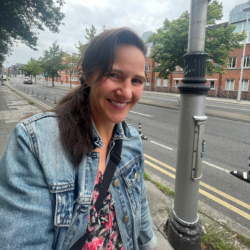
Tess Wise (she/they) is an Assistant Professor at Wake Forest University in Winston-Salem, North Carolina. They hold a PhD in Government from Harvard University and a BS in Political Science and Foreign Languages and Literatures from MIT. Their research centers on racialized political economy and seeks to put Critical Race Theory, racial capitalism, and anticolonial theory in dialogue with political science to study systemic racism and the global politics of accumulation through dispossession. Their book project, White Knuckling: Holding On in America’s Racialized Political Economy, uses ethnographic interviewing and historical analysis to explore how White middle-class Americans going through wage-earner bankruptcy are simultaneously advantaged and disadvantaged and how they make sense of their political-economic realities. Their new research project examines land grabs following the 2008 Global Financial Crisis and how foreclosure and Real Estate Investment Trusts (REITs) are used as financial plantation technologies to benefit an enduring feudal-colonial elite. They are grateful for the space created by SASE for conservations, connections, and collaborations around the critical study of race and capitalism.
MC03 accepts abstracts of approximately 1000 words (deadline December 16 2024). If your abstract is accepted, you will be asked (but not required) to submit a full paper prior to the conference in Montreal (9-12 July 2025). The mini-conference organizers will be in touch about deadlines and specifications.
MC03 will organize one virtual session during the virtual conference days (1-3 July 2025), as well as one hybrid session during the on-site conference (9-12 July 2025).
Submissions can be made through the usual process, details here: https://sase.org/event/2025-montreal/#submission-guidelines
Call for papers
Building on three mini-conferences on the entanglements of race and capitalism at the 2022, the 2023, and the 2024 annual meetings of the Society for the Advancement of Socio-Economics (SASE), we are seeking papers that explore the relationship between race/ism, capital/ism, states, markets, and a variety of genres of social difference employing a diverse range of perspectives and methods. We are excited to continue building space for scholarship that centers race/racialization/social difference as foundational categories of analysis and categories of practice. While we welcome work dealing with a variety of topics that meet the above criteria, we are especially interested in submissions that trace the linkages between governance (contemporary or historic), subjectivities (racial or otherwise), and solidarities that coincide with the SASE 2025 theme, “Inclusive Solidarities: Reimagining Boundaries in Divided Times.” Inspired by the conference’s setting in Montreal, Canada, home of the Haudenosaunee and the Kanien’kehá:ka (Mohawk) nations, we are also interested in scholarship that considers the relationship between race/ism, capital/ism, social difference, and settler colonialism. We invite submissions that build on a body of work in race, gender and sexualities, racialized organizations, race and neoliberal governance, racialized property regimes, the historic relationship between race and capitalism in different geographic contexts, environmental racism, ecological violence and land degradation, colonial and ongoing extraction of labor from the Global South, and work that highlights alternative genres of social difference (gender, caste, kinship, et cetera), among others. Papers using global and transnational perspectives and de/post/anticolonial and intersectional approaches are welcome.
MC04: Navigating Insecurities: Precarity, Crisis, and Paths to Solidarity
detailed info Lorenza Antonucci
Lorenza Antonucci

Lorenza Antonucci (she/they) is Associate Professor in the Department of Social Policy, Sociology and Criminology and Deputy Head of Research (Methodology) at the College of Social Sciences at University of Birmingham (UK). She was German Kennedy Memorial Fellow & Visiting Scholar at the Minda de Gunzburg Center for European Studies (Harvard University) in 2022-2023 and remains affiliated with the Weatherhead Research Cluster on Comparative Inequality & Inclusion. Their research is concerned with understanding how societies are changing and reacting to growing socioeconomic insecurity and inequality in Europe and globally. Antonucci is currently investigating platform work as a site of reconfiguration of insecurity and examining how socioeconomic insecurity reverberates into populist voting. Her interdisciplinary and comparative sociological work has been published in international journals (e.g., European Sociological Review, Current Sociology, Social Policy & Administration, Sociological Research Online, Journal of Youth Studies). Antonucci has a keen interest in theorizing insecurity alongside other key sociological concepts across cultural and economic sociology, such as social status, recognition and sociology of risk. Their previous book (Student Lives in crisis) examined insecurity among young people at university; their next book, forthcoming with Princeton University Press, offers an in-depth examination of how Europe has become more insecure and how this resulted in an increasing support for populism.
 Elena Ayala-Hurtado
Elena Ayala-Hurtado
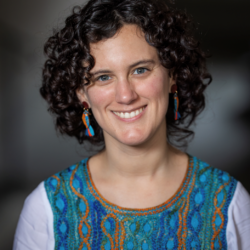
Elena Ayala-Hurtado is a Presidential Postdoctoral Research Fellow at Princeton University and recently graduated from Harvard University. She is a cultural sociologist studying issues of work and economic life, higher education, and young adulthood. Her research generally examines how people experience and respond to uncertainty. Her cross-national dissertation examined the experiences of young college graduates facing insecurity in spite of their high educational attainment in Spain and the United States. Her work has been published in Work and Occupations, Sociology of Education, British Journal of Sociology, and RSF: The Russell Sage Foundation Journal of the Social Sciences.
 David Joseph-Goteiner
David Joseph-Goteiner

David Joseph-Goteiner is a PhD candidate at UC Berkeley. He is a digital sociologist broadly studying the morals and politics that animate emerging technologies, and the consequences of digitalization for individuals and social institutions. His dissertation examines the meanings and motivations behind platform work, building on theoretical discussions of dependence, embeddedness, and fairness. His work has been published in Socius, Sociology of Religion, and Management and Organization Review.
 Joaquín Prieto
Joaquín Prieto

Joaquín Prieto is a Visiting Fellow at the International Inequalities Institute (III) at the London School of Economics (LSE) and leads the Diploma in Advanced Methods in Statistics and Data Science at the Faculty of Government, University of Chile. His research focuses on developing new economic and social well-being measures aimed at designing more inclusive and sustainable policies, particularly for emerging economies.
His work spans three main research areas: i) forward-looking well-being measures, such as vulnerability to poverty and economic insecurity; ii) spatial inequality measures, including the geography of opportunity; iii) labor market development, with an emphasis on the quality of employment.
Joaquín is a member of the WAPLAC Network (Welfare and Policy in Latin America and the Caribbean), the Quality of Employment group at the III, the WEIPO group (Wellbeing, Inequality, Poverty, and Public Policy) at the University of Alcalá de Henares, Spain, and the Work and Employment Thematic Group of the Human Development and Capability Association.
He holds a PhD in Social Policy from LSE, a BA in Industrial Engineering, an MSc in Economy and Environmental Management, and postgraduate studies in Sociology from the Universidad Católica in Chile. Before joining LSE, he founded and directed the Social Observatory at Universidad Alberto Hurtado in Chile, which specialized in longitudinal data for the design, implementation, and monitoring of social policies. Additionally, Joaquín has worked as a consultant for the OECD, the IADB, the ILO, and Rand Corporation, and as a research fellow at the Lincoln Institute of Land Policy.
 Hequn Wang
Hequn Wang

Hequn Wang is a postdoctoral researcher at Université catholique de Louvain (UCLouvain, Belgium) and has recently completed her doctoral studies in sociology at University of Hamburg (Germany). Her doctoral thesis examined the socioeconomic perceptions and insecurity of Europeans, and their attitudes towards inequality and social policy across Europe. Her general research interests include social inequality, perceptions, (subjective) well-being, welfare attitudes, as well as country-comparative and panel analyses. Her work has been published in international journals, such as Social Indicators Research and the International Journal of Social Welfare.
She is currently engaged in an interdisciplinary, collaborative project (the BE-WELL project) that involves UCLouvain, University of Antwerp, University of Luxembourg, and University of Padua. The project investigates Europeans’ subjective well-being and mental health across different sociodemographic groups over the past decades and in post-Covid times. Her research also accounts for the perspective of socioeconomic insecurity in both objective and subjective terms.
MC04 accepts abstracts of approximately 1000 words (deadline December 16 2024). If your abstract is accepted, you will be asked (but not required) to submit a full paper prior to the conference in Montreal (9-12 July 2025). The mini-conference organizers will be in touch about deadlines and specifications.
MC04 will organize one virtual session during the virtual conference days (1-3 July 2025), as well as one hybrid session during the on-site conference (9-12 July 2025).
Submissions can be made through the usual process, details here: https://sase.org/event/2025-montreal/#submission-guidelines
Call for papers
‘Precarity’ and ‘socioeconomic insecurity’ encompass more than mere employment uncertainty; they refer to the micro-experiences of insecurity faced by working class individuals and the shrinking middle class (often referred to as the ‘squeezed middle’) worldwide. Despite the frequent use of these concepts in recent sociological and political discourse, economic sociology has only just begun to theorize insecurity in a meaningful way.
Firstly, we emphasize the entanglement of objective and subjective boundaries which define socioeconomic insecurity. Secondly, we ask about how insecurity is constituted in the contexts of economic crises, international conflicts and wars, refugee crises, climate change, pandemics, and demographic ageing. Furthermore, automation and artificial intelligence are expected to significantly change the future of work, reducing employment and increasing the number of low-paid jobs. Finally, we note that a comprehensive study of insecurity must consider the toolkit of responses to precarity, including solidarity within and beyond national boundaries in times of a ‘global polycrisis’ (Lawrence et al. 2024).
Our first aim is to conceptualize insecurity. There is an urgent need to broaden the conceptualization of socioeconomic insecurity beyond purely (macro)economic processes to include meso- and micro- manifestations of precarity. An operationalization of insecurity that employs both objective and subjective indicators, and that entails livelihoods as well as institutions, can clarify the interplay between macro-processes and micro-manifestations, and bridge the gap between economic and cultural strands in socioeconomic studies.
Our second aim is to put insecurity into a more contextual perspective. It is particularly relevant to examine how insecurity has evolved over the last few decades given the crises and developments that have occurred. Different sociodemographic groups (e.g. by age, gender, class, and race/ethnicity) may experience and respond to the crises in disparate ways. Also, it is highly relevant to examine cross-sectional, regional, and country differences and similarities. Insecurity is a concept that has been used by scholars of the Global South and mobilized by non-Western scholars to describe the social realities in these parts of the world (see Bardhan 2022). By using the concept of insecurity, we hope to bring together research on a global scale.
Our third aim is to relate insecurity to solidarity. Insecurity can be experienced as debilitating and stigmatizing. Yet some individuals turn precarity and adversity into an important part of their identities, as well as resisting and adapting to their conditions. Moreover, insecurity can be isolating, especially in cultural contexts that place responsibility on individuals. At the same time, precarity and insecurity have been the basis for organizing and collective action. The solidarity that emerges from insecurity can threaten democracy, as in the upsurge of populism and increased distrust of institutions, both in the Western World and the Global South. Scholars can help to develop responses in the toolkit used to address insecurity.
Our mini conference is concerned with advancing the empirical and theoretical understanding of socioeconomic insecurity and conceptualizing what makes individuals insecure at multiple levels. We are particularly interested in gathering research that addresses the following questions:
– How has socioeconomic insecurity changed over the past decades and been impacted by different crises (e.g. climate change, Covid-19, recent wars and conflicts)? Could we expect a divergence or convergence in experiences of insecurity across countries and regions?
– To what extent does insecurity diverge among different socio-demographic groups? What are the connections between the insecurity experienced by individuals and intersectional inequalities pertaining to age, class, gender, and race/ethnicity?
– What are the connections between work precarity and insecurity in livelihoods? What is the relationship between objective and subjective insecurity experienced by individuals?
– How does job automation and the integration of artificial intelligence into the workforce shape perceptions of economic insecurity among different social classes?
– What role does economic insecurity, intensified by automation, play in shaping political polarization and the rise of populism? To what extent does the integration of artificial intelligence in specific sectors, such as manufacturing or services, exacerbate feelings of economic instability and affect political preferences?
– How and why do individuals make sense of their insecurity as separate from, or in relation to, others? What are the processes that (dis)embed insecurities in social relations and institutions?
– What is the relationship between individual and collective responses to insecurity? When do individual responses and competition inhibit solidarity, and when do these same dynamics open opportunities for collective responses?
– When is solidarity that arises from insecurity subsumed into social categories such as class, race, ethnicity, or nationality? When does solidarity span across existing social categorizations and classifications?
References
Bardhan, P. (2022). A world of Insecurity: Democratic disenchantment in rich and poor countries. Cambridge: Harvard University Press.
Lawrence M., Homer-Dixon T., Janzwood S., Rockstöm J., Renn O., & Donges J.F. (2024). Global polycrisis: The causal mechanisms of crisis entanglement. Global Sustainability 7, e6, 1–16. https://doi.org/10.1017/sus.2024.1
MC05: Reimagining the Boundaries of the Agrifood Systems: Disciplinary Divides and Contemporary Challenges
detailed info Arturo Ezquerro-Cañete
Arturo Ezquerro-Cañete

Arturo Ezquerro-Cañete holds a double PhD in International Development Studies from Saint Mary’s University and the Universidad Autónoma de Zacatecas. His research focuses on the dynamics of agrarian transformations and new peasant movements in Paraguay. His work has been published in the Journal of Agrarian Change, Latin American Perspectives, and Estudios Críticos del Desarrollo. His is the co-editor of Agrarian Extractivism in Latin America (Routledge, 2021).
 Mariana Levy
Mariana Levy

Mariana Levy is a postdoctoral researcher at the Faculty of Law São Paulo University (USP). She was a Professor at the Faculty of Law of Brasília University (UNB).
She is a lawyer and a social scientist. Doctorate in law at São Paulo University and a visiting researcher at the Institute of Latin American Studies at the Free University of Berlin. Received the Lincoln Institute of Land Policy Case Study Award (2021). She worked for the Ministry of Justice and the Ministry of Cities in Brazil. Her studies are focused on urban and environmental law and policy, as well as the regulation of the food system in Brazil.
 Gustavo Setrini
Gustavo Setrini

Gustavo Setrini is currently Academic Coordinator at FLACSO Paraguay. He holds a Ph.D. in Political Science from the Massachusetts Institute of Technology, where he specialized in the political economy of development. From 2019-2023 he was Head of Solutions Mapping at the United Nations Development Program’s (UNDP) Accelerator Laboratory in Paraguay and from 2013-2019 he was Assistant Professor of Food Studies in the Department of Nutrition and Food Studies at New York University’s Steinhardt School of Education, Culture and Human Development, where he researched and taught M.A. courses about the political economy of global food systems. He has extensive experience in impact evaluation and the use of qualitative, quantitative, and mixed research methods. He is the child of Paraguayan immigrants in the U.S., and committed to academic research for improving development outcomes in Paraguay and Latin America.
MC05 accepts abstracts of approximately 1000 words (deadline December 16 2024). If your abstract is accepted, you will be asked (but not required) to submit a full paper prior to the conference in Montreal (9-12 July 2025). The mini-conference organizers will be in touch about deadlines and specifications.
MC05 will organize one virtual session during the virtual conference days (1-3 July 2025), as well as one hybrid session during the on-site conference (9-12 July 2025).
Submissions can be made through the usual process, details here: https://sase.org/event/2025-montreal/#submission-guidelines
Call for papers
In recent decades, food and agrifood systems have become much more politicized and are likely to remain so in light of current food crises. The return of food insecurity, driven by inflation provoked by pandemic-related supply chain disruptions (Akram-Lodhi, 2021) and wars in regions such as Ukraine and Palestine (Hall, 2023), is further exacerbated by migration and refugee crises (Delgado Wise and Veltmeyer, 2016), the rollback of social protection policies, the financialization of the agrifood system (Clapp and Isakson, 2018), and the return of agro-extractivist development models in the global south (McKay, Alonso-Fradejas and Ezquerro-Cañete, 2021). Agriculture, as both a contributor to and a victim of climate change, faces significant challenges, including the reliance on carbon-intensive methods, yields highly sensitive to temperature and precipitation, and the increasing prevalence of crop diseases.
The resulting social and political disputes over food and agriculture must be understood within the context of a global agrifood system that is the product of the history of capitalism and empire, and in which certain groups and interests have emerged as politically powerful, wealthy, and highly organized, while others are highly fragmented by objective and subjective forms of difference. These differences manifest in a highly concentrated and internationally connected network of corporate and financial interests, in contrast with consumers and producers that are highly heterogeneous, socially stratified, and organized along national or local lines. States and governments with highly heterogeneous internal political economies, each seek out their interests in a hierarchical international system.
To comprehend the dynamics and evolution of this system, scholars have developed overarching frameworks such as “Food Regimes” – which traces shifts from the first, liberal, global food regime of the 19th century, to the second global food regime composed of national agricultures and regulated global markets in the 20th century, and to the neoliberal food regime of the late 20th and early 21st century. Similarly, the concept of “Food Policy Paradigms” helps understand the shift from a concern with producing an adequate number of calories to feed growing populations to “post-productivist” paradigms in which both political activism and corporate strategy contemplate the social, environmental, and cultural dimensions of food. In response to current crises, struggles arise among diverse interests to institutionalize divergent visions of the future agrifood system.
However, the social study of food and agriculture is fragmented across a large number of disciplinary fields, such as rural and urban sociology, political science, and anthropology, across new interdisciplinary areas like Critical Agrarian and Food Studies, and within disciplines linked to the life sciences such as nutrition, medicine, and agronomy.
Proposal: We propose a mini-conference and a series of panels aimed at building bridges across the disciplinary divides that have emerged in the study of food. Creating interaction and building knowledge across these divides is essential for identifying the broader and more inclusive solidarities that can emerge across the agrifood system among the very diverse groups, identities, and interests that arise in relation to its different sectors, geographies, and histories.
Themes for Discussion:
-
- Food versus Agriculture: Exploring the intersections and tensions between food production and agricultural practices.
- Food Production Systems versus Food Culture, Identity, and Semiotics: Examining the relationship between the systems that produce food and the cultural meanings, (national, class, racial, and gender) identities, and symbols associated with food.
-
- Urban versus Rural Geographies: Investigating the spatial dimensions of agrifood systems and the differing experiences of urban and rural communities with regard to land, natural resources and agrifood production and consumption.
- Agrifood Politics versus Agrifood Policy: Analyzing the political dynamics and policy frameworks that shape agrifood systems at various scales.
- Agrifood Systems in the Global North versus the Global South: Understanding the connections, convergences, and divergences in the trajectories of agrifood systems across the capitalist core, semi-periphery, and periphery.
By engaging with these themes, the proposed mini-conference aims to create a platform for scholars and practitioners to collaborate, share insights, and develop a more cohesive understanding of agrifood systems.
MC06: Re-imaging Solidarity through Meaningful Work: Obstacles, Challenges and Opportunities
detailed info Shoba Arun
Shoba Arun

Shoba Arun is Reader in Work and Organization Studies at Essex Business School, University of Essex. Prior to joining Essex Business School, she was Professor of International Sociology at Manchester Metropolitan University and at the University of Greenwich. Arun’s research interest in the field of sociology of work has a strong international and comparative dimension with expertise on emerging economies such as India and Africa in the nexus of their global work, neoliberal regimes, organizations and labor markets, migration, digital technology, and global value chains with a focus on social justice and well-being. She has been recently awarded a UKRI funded project exploring autonomy in the garment sector workplaces of Leicester and Dhaka, focusing on workplace control and autonomy. Her monograph Development and Gender Capital in India: Change, Continuity and Conflict in Kerala (Routledge, 2018) uses a feminist Bourdieusian frame of analysis of gender capital to examine gendered issues in the economy and society. Her latest (co)edited volume, Global Migration and Diversity of Educational Experiences in the Global South and North, published by Routledge, focuses on decolonizing migration studies. She is a Senior Fellow of the Higher Education Academy and member of the British Sociological Association and the Global Studies Association, United Kingdom. She serves on the Editorial Board of the British Sociological Association (BSA)’s Work, Employment and Society Journal.
 Knut Laaser
Knut Laaser
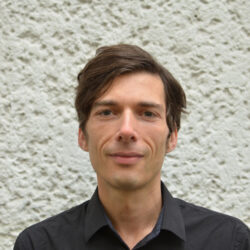
Knut Laaser is a Senior Researcher and Interim Professor in the Sociology of Work at the Brandenburg University of Technology Cottbus–Senftenberg and a Senior Lecturer at the University of Stirling. He holds a Ph.D. in Management from the University of Strathclyde and has a scholarly background in Sociology (MSc, London School of Economics and Political Science) and Socio-Economics (University of Hamburg). His research encompasses conceptual and empirical work on the issues of Meaningful Work, Moral Economy and the Labour Process. His research is published in leading academic journals such as Work, Employment and Society, International Journal of Management Reviews and Organization. More recently, together with Jan Ch. Karlsson, he co-authored The Politics of Working Life and Meaningful Waged Work (Cambridge University Press, 2024) and the WES Sage Innovation Prize-winning article “Towards a Sociology of Meaningful Work” in Work, Employment and Society. He is an Editor of Work, Employment and Society and is editing the upcoming special issues on Moral Economy in Economic and Industrial Democracy (2025) and on Meaningful Work in International Human Resource Management (2026).
 Valeria Pulignano
Valeria Pulignano
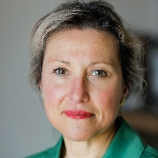
Valeria Pulignano is Professor of Sociology, with expertise on work, employment (industrial) relations and labor markets and Francqui Research professor of Sociology at KU Leuven. She holds a Ph.D. in Sociology and a scholarly background in socio-economic studies. She is Coordinator of the RN17 Work, Employment and Industrial Relations at the European Sociological Association (ESA) and researcher at the Inter-University Research Centre on Globalization and Work (CRIMT), research fellow at Warwick University (UK) and LISER, Luxemburg. She is Editor of Work, Employment and Society, Associate Editor of Journal of Industrial Relations and former Chief-editor of Work, Employment & Organizations (Frontiers). Valeria’s research lies in work, employment (industrial) relations and labor markets, their changing nature and implications for voice at work and inequality as differences in wages, working conditions, job quality, precarity and wellbeing across different sectors and national settings. She is Winner of the James G. Scoville Award 2015 from LERA and she holds a Chair Jacques Leclerq at UCL. She has a forthcoming book with OUP on The Politics of Unpaid Labour. How can Unpaid Labour help to address inequality in Precarious Work. Among her recent books Shifting Solidarities. (2020, Palgrave-MacMillan) with I. Van Hoyweghen and G. Meyers; Reconstructing Solidarity (2018, Oxford University Press) with V. Doellgast and N. Lillie.
MC06 accepts abstracts of approximately 1000 words (deadline December 16 2024). If your abstract is accepted, you will be asked (but not required) to submit a full paper prior to the conference in Montreal (9-12 July 2025). The mini-conference organizers will be in touch about deadlines and specifications.
MC06 will organize one virtual session during the virtual conference days (1-3 July 2025), as well as one hybrid session during the on-site conference (9-12 July 2025).
Submissions can be made through the usual process, details here: https://sase.org/event/2025-montreal/#submission-guidelines
Call for papers
The importance of meaningful work for the flourishing of democratic societies, individuals, and organizations alike is increasingly recognized by scholars, policymakers, and practitioners (e.g., Bailey et al., 2019; Blustein et al., 2023; Laaser and Karlsson, 2023; Lysova et al., 2023; Yeoman, 2014). Meaningful work, broadly understood as work that allows people to ‘satisfy their inescapable interests in freedom, autonomy, and dignity’ (Yeoman, 2014: 235), is not only a key enabler of individual well-being, but also serves as a crucial foundation for social cooperation (Veltman, 2010). Meaningful work scholarship puts the spotlight on the social cooperation and the experience of the worth of ones doing for oneself and others that paves the way for what Durkheim dubbed ‘organic solidarity’. Indeed, ‘organic solidarity’ refers to a form of solidarity based on mutual interdependence and trust despite heterogeneity and value pluralism that can be fostered and experienced through meaningful work (Sayer, 2009; Veltman, 2010). Certainly, solidarity embodies also a form of identification and as such is both inclusive and exclusionary, emerging from bonding and bridging which are socially constructed and institutionally embedded (Morgan and Pulignano, 2020). Meanwhile, the social mechanisms of bonding and bridging reveal deeper lying inequalities. Against the backdrop of persisting inequalities in highly differentiated societies that rest on a rigid division of labour, the existence and, indeed, possibility of solidarity between heterogenous groups and the likelihood of meaningful work for the many under capitalism is questioned (Honneth, 2023).
This mini-conference seeks to explore how the intersection of multiple inequalities—such as ethnicity, gender, class, education, skill levels, and occupational prestige— constrain, but also shape, ways of organizing, accessing and experiencing meaningful work and how, in turn, work reinforces and deepens disconnections and fragmentations or acts as a cornerstone for overcoming social cleavages and building solidarity.
The focus on intersectionality in tandem with solidarity and meaningful work is particularly urgent as the majority of labour market participants struggle to access meaningful work, and the availability of such work is becoming increasingly precarious and disconnecting. Indeed, research provides ample evidence that emerging business models, such as platform work, and technological transformations, notably the rise of artificial intelligence, tend to deepen the unequal distribution of meaningful work, concentrating its benefits among a privileged few (Bankins and Formosa, 2023; Herzog, 2019; Horizon Research and Innovation Ec Europa Eu, 2021; Lysova et al., 2023). This unequal distribution exacerbates broader social and economic inequalities and undermines the solidarity that meaningful work can foster. When meaningful work becomes a privilege rather than a shared experience, it weakens the sense of mutual responsibility and collective purpose that are fundamental to building and sustaining solidarity.
To understand how these dynamics unfold, it is essential to consider the broader social, political, and economic structures that shape access to meaningful work, fostering or constraining the ‘bonding’ and ‘bridging’ as central to solidarity to occur. Social stratification—including factors such as class and occupational hierarchies—determines who has access to meaningful work and who is relegated to work that is devoid of purpose or dignity. Occupational class, whether defined through traditional categories like white-collar and blue-collar work or more recent distinctions like pink-collar labour, plays a crucial role in shaping the constraints and enablers of meaningful work (Lips-Wiersma et al., 2016). These structures not only affect individual experiences of work but also contribute to the reproduction and amplification of inequalities across society.
The experiences of work in the Global South, where labour conditions, social hierarchies, and economic inequalities often take different forms, remain underexplored. Integrating perspectives from the Global South into discussions of meaningful work, intersectionality and solidarity is essential for a more comprehensive understanding of how work is shaped by global systems of power and inequality. Research from the Global South can offer unique insights into how intersecting inequalities such as caste, colonial histories, and informal labour markets influence access to meaningful work and how all this impact upon solidarity. These perspectives challenge and enrich dominant narratives that are predominantly shaped by experiences in the Global North, highlighting the need for a more globally inclusive approach to both theory and practice in meaningful work scholarship.
In addressing these inequalities, it is also crucial to evaluate the role of established institutions, both social and economic. Institutions like labour unions and educational systems have historically been both complicit in perpetuating hierarchies and instrumental in advocating for equitable access to meaningful work. In the context of intersectionality, the potential for transforming these institutions to bridge divides along class, gender, and other social lines becomes especially pertinent. New institutions, such as digital platforms and gig economies, present both challenges and opportunities for fostering solidarity. While they often exacerbate precarious and unequal working conditions, they also offer potential avenues for new forms of collective action that cross traditional boundaries.
This mini-conference encourages research that investigates how both traditional and emerging institutions can be reimagined to create more inclusive, intersectional forms of solidarity through the distribution of meaningful work. Contributions are asked to explore the six following areas:
- How do intersectional inequalities shape access to and experiences of meaningful work? How do social identities, such as gender, race, and class, intersect to either enable or constrain access to meaningful work?
- What role do foundational social, political, and economic institutions play in reinforcing or challenging the unequal distribution of meaningful work? How can these institutions be reformed to promote more inclusive forms of solidarity?
- How do technological changes, generative AI and new business models, such as platform work impact on the social cooperation meaningful work rests on? What are the consequences for solidarity in a labour market increasingly marked by inequality and precarity? What are the meanings individuals attribute to their experiences of precarity in work and life?
- How do individuals and organizations navigate or resist these inequalities in their pursuit of meaningful work? What examples exist of labour movements or social movements that have successfully bridged intersectional divides to promote solidarity?
- How do perspectives from the Global South deepen our understanding of the relationship between meaningful work, intersectionality, and solidarity? In what ways do unique social hierarchies, such as caste, colonial legacies, and informal labor markets, influence the availability and experience of meaningful work in these regions? How do global systems of inequality, including the uneven distribution of economic resources and labour standards, shape the capacity of workers in the Global South to engage in meaningful work, and what lessons can be drawn for building cross-border, intersectional forms of solidarity?
- How do global forces such as migration and neoliberal forms of working impact on solidarity and meaningful work, and reshape intersectional structures?
By examining these questions, this mini-conference aims to foster a deeper understanding of the intersectional dynamics that shape meaningful work and explore how solidarity can be reimagined and strengthened in increasingly divided societies. It seeks to encourage more inclusive forms of solidarity that transcend class, gender, and other social divisions, thereby fostering a more just and cooperative society.
MC07: Social Ecologies of the Economic Process: Capitalist Metabolism, Materialities and Frontiers
detailed info Nelo Magalhães
Nelo Magalhães

Nelo Magalhães holds a doctorate in mathematics (2015) and economics and history (2022). He is currently a post-doctoral fellow at the Centre de recherches historiques at the Ecole des Hautes Etudes en Sciences Sociales in Paris. His research focuses on the materiality of capitalism, from a perspective that combines political economy, socio-ecological economics and environmental history. In particular, he has studied the metabolism of the French economy in the context of unequal ecological exchange (from 1830) and the theory of Regulation (from 1945). Based on an analysis of the most important material flows and stocks, he has recently published an environmental history of large transport infrastructures (2024).
Photograph by: Anthony Francin/La fabrique
 Éric Pineault
Éric Pineault

Éric Pineault is a member of the Institute of Environmental Sciences at UQAM and chairs its research committee. He is also an associate researcher at the UQAM Research Chair in Ecological Transition and the scientific director of the Resilient City Hub.
He holds a joint doctorate in institutional economics and sociology from the École des Hautes Études en Sciences Sociales in Paris and the Université du Québec à Montréal (2002). Since then, the core of his research has been contributing to political economy and the critical theory of advanced capitalism. His doctoral research (1999-2002) focused on the emergence and structures of a regime of financialized accumulation within advanced capitalism. In 2003, he became a professor in the Department of Sociology at the Université du Québec à Montréal (UQAM), where he continued to analyze financialization from a more empirical perspective, leading to numerous publications on this regime’s impacts on firms and households.
After the 2008 crisis, his research shifted to the structural and macroeconomic impacts of austerity policies, which he analyzes as a form of class struggle led by the upper echelons of society. This research program was developed in collaboration with social and labor movements opposing these policies in Quebec. In parallel, Éric Pineault developed an analytical framework for studying the development of the extractive sector in Canada, particularly how the oil sands industry shapes the trajectory of Canadian capitalism. This context introduced him to social metabolism and ecological economics, which have since become focal points of his research and writings. His current research on the social ecology of capital involves integrating these approaches and concepts into the political economy of advanced capitalism. He is also interested in Quebec’s energy transition from a degrowth perspective.
MC07 accepts abstracts of approximately 1000 words (deadline December 16 2024). If your abstract is accepted, you will be asked (but not required) to submit a full paper prior to the conference in Montreal (9-12 July 2025). The mini-conference organizers will be in touch about deadlines and specifications.
MC07 will organize one virtual session during the virtual conference days (1-3 July 2025), as well as one hybrid session during the on-site conference (9-12 July 2025).
Submissions can be made through the usual process, details here: https://sase.org/event/2025-montreal/#submission-guidelines
Call for papers
Contemporary social ecology has emerged at the intersection between the biophysical environmental sciences, ecological economics and sociology (Fischer-Kowalski et al, 2023). It proposes an interdisciplinary and holistic framework that integrates and examines the materiality of the economic process of contemporary society. Relations of production and consumption, the classic sites of socioeconomic analysis, are embedded in a wider metabolic structure that begins with relations of extraction and ends with relations of social dissipation (Georgescu-Roegen, 1971). Both of these points of the economic process mediate a society’s relations to ecosystems and biogeochemical cycles, and thus operate as boundaries between economies and nature. This ecologically « expanded » approach to the economic process is a powerful tool to analyze the socio-ecological structures, dynamics and contradictions of capitalist societies (Pineault, 2023).
Social ecologist have developed rigorous empirical tools that capture and represent the materiality of capitalist economies at the national, regional and global level through material flow analysis of the « throughput » (Haberl et al, 2019). The theory of sociometabolic regimes focuses on the structural change of this material base of societies throughout history (Gorg et al, 2019). Theories of unequal ecological exchange highlight the asymmetric material flows between centers and peripheries that are constitutive of global inequalities (Dorninger et al, 2021). Theories of colonization examine the degree of artificialization of ecosystems created or transformed by social processes in the course of their metabolic reproduction leading to unsustainable degrees of human appropriation of net primary production (Erb 2009). A number of promising cross-fertilisations have already been made with political ecology (Pérez-Rincón et al, 2018), environmental history (Magalhães et al, 2019) and transition studies (Groß et al, 2022). Finally, theories of capitalist metabolism have explored how accumulation at the point of extraction and at the point of dissipation shape the material trajectory of modern societies and I transformed (and destabilized) ecosystems and biogeochemical cycles world wide.
The proposed mini-conference would open a space for presentation and discussion of recent research using methods and theories that interrogate these socio-ecological dimensions of capitalism and economies from this materialist / metabolic perspective. Some questions and issues we wish to discuss are:
- How should socio-economic research on capitalism and the environmental crisis engage with this new material turn proposed by social ecologists ?
- How does the ecologically expanded view of the economic process and the analysis of the material basis of modern societies challenge current sociological conceptions of capitalism and economies in general ?
- How can economic sociologists contribute to the analysis of extraction and social dissipation as boundary relations ?
- How can socio-economic research use the quantitative data produced by material flow analysis ? Can this data be enriched by sociological methods and empirics ?
- What insights and theories from economic sociology are relevant to the socio-metabolic analysis of capitalist society ?
- How can the historical research on socio-metabolic regimes be enriched by sociological analysis and critique ?
- What tools can be used to analyse the metabolism associated with large capitalist firms?
- How can economic sociologists sharpen the critical thrust of socio-metabolic analysis and more widely the social ecology of capitalist societies, what categories, theories, methods are needed or could be fruitfully mobilized ?
- What are the power relations (class, gender, race) that enable a certain metabolism, and how does a configuration of metabolism support them in return?
- How social ecology can help understanding the materiality of the hegemony of particular social hierarchies, power relations, and institutions?
MC08: The Socio-economics of Asset Stranding
detailed info Valentina Ausserladscheider
Valentina Ausserladscheider

Valentina Ausserladscheider is an Assistant Professor of Economic Sociology at the University of Vienna. Before joining the University of Vienna, she completed her PhD in Sociology at the University of Cambridge. Her research empirically investigates institutional change and continuity in times of crises. Currently, she explores climate-vulnerable industries´ responses to climate change. Her work has been published in Review of International Political Economy, New Political Economy, Cambridge Journal of Economy, Regions and Society, and the Journal of Cultural Economy.
 Timur Ergen
Timur Ergen

Timur Ergen is a senior researcher at the Max Planck Institute for the Study of Societies and an interim professor of sociology at the University of Oldenburg. Timur co-organizes the SASE Research Network Digital Economy and has been a member of SASE’s Executive Council since 2020. His research investigates competition, energy transitions, industrial and technology policy, and the postindustrial economy. His previous work has appeared in Competition and Change, Energy Research and Social Science, the Review of International Political Economy, and the Socio-economic Review.
 Philipp Golka
Philipp Golka

Philipp Golka is a senior researcher at the Max Planck Institute for the Study of Societies, Cologne. His main research interest is to understand the link between the lifecycle of assets and wider social dynamics through conceptual and empirical research located at the intersection between economic sociology and political economy. Philipp holds a PhD in sociology from the University of Jena, Germany. His previous work has been published in journals such as: Review of International Political Economy, Economy and Society, New Political Economy, Competition and Change, and Finance and Society.
MC08 accepts abstracts of approximately 1000 words (deadline December 16 2024). If your abstract is accepted, you will be asked (but not required) to submit a full paper prior to the conference in Montreal (9-12 July 2025). The mini-conference organizers will be in touch about deadlines and specifications.
MC08 will organize one virtual session during the virtual conference days (1-3 July 2025), as well as one hybrid session during the on-site conference (9-12 July 2025).
Submissions can be made through the usual process, details here: https://sase.org/event/2025-montreal/#submission-guidelines
Call for papers
The climate crisis threatens capital on an unprecedented scale. Enormous amounts of capital invested in fossil fuel-related assets are facing write-offs as part of climate change mitigation efforts. Furthermore, both adapting to and failing to adapt to ongoing climate change is projected to cause destruction and economic losses amounting to trillions of dollars. Despite the long-standing socio-economic interest in green transitions, the destructive and protective processes that emerge as huge quantities of financial and real assets face such ‘stranding’ have not yet been investigated systematically.
In recent years, the interplay between the environment and asset devaluation has garnered significant scholarly attention, particularly in the context of accelerating climate change. The concept of stranded assets has been predominantly studied in finance, accounting, and environmental economics. While these accounts have provided important contributions to understand stranded assets, we lack a systematic analysis of the socio-economics of asset stranding. In sociology and political science, the aspects of climate change-related stranding have sparked similarly specialized literatures – e.g., the sociologies of loss, risk regulation, and the restructuring of local communities (Paprocki 2019). This mini-conference seeks to move the problem of stranding out of specialist niche territory and aims to use it as a catalyst to connect research on climate change to socio-economics’ core theoretical questions.
Our mini-conference aims to develop the analysis of asset stranding by assembling presentations that investigate climate change as a problem of deep structural change. Faced with the threat of asset stranding, climate change mitigation and adaptation represent processes of resource reallocation with massive distributional consequences. Discussing climate change as a momentous restructuring problem is an opportunity to utilize socio-economics’ rich general theoretical repertoire analyzing processes of economic change. At the same time, the problem of asset stranding is sufficiently specific to stimulate an original conversation between different socio-economic perspectives. As such, the mini-conference is meant to foster a scholarly community around the problem of stranding by bringing together contributions from socio-economic subfields that are otherwise difficult to connect in practice without a concrete empirical focus.
The main agenda of the mini-conference is to push the socio-economic analysis of stranded assets in two directions. First, a subset of panels aims to understand the varieties of how actors deal with problems of economic devaluations. Processes of ‘asset stranding’ are shaped by a variety of forms of societal (in)action: political decisions to mitigate climate change, policies supporting economic growth and managing economic decline and reallocation, selective compensatory and acceleratory decisions, and anticipatory and future-oriented decision making under vulnerable climate conditions. Putting problems of stranding front and center relates climate change to broader theoretical problems regarding socio-economic change in capitalist societies. How do capitalist societies initiate, cope with, organize, and react to large-scale shifts in relative valuations? Second, we argue that these processual aspects of asset stranding are complemented by material effects of capital failure as a socio-economic problem. The gigantic proportions of the asset stranding problem open up the field to exchange between core subdisciplines within the wider SASE-community by inviting research into the fundamental processes through which societies respond to this problem.
We invite scholars from political economy, sociology, anthropology, business studies, economic history, economic geography, industrial relations, organizational analysis, and neighboring disciplines to contribute to the analysis of the socio-economics of asset stranding. The conference invites contributions related – but not limited – to the following core themes and research problems:
The inequalities of asset stranding. As processes of large-scale reallocation, stranding processes have a direct relation to distributional outcomes between firms, industries, households, and societies. How do stranding processes tie in and interact with economic, social and global inequalities? Are there different levels or types of affectedness, different levels or types of resistance or different capabilities of shaping stranding modalities? How can we conceptualize unequal capabilities to adapt to climate change?
Stranding as an uneven process. Recent conflicts over transnational climate policy have highlighted that there is a major fault line of 21st century climate politics between poorer societies heavily affected by the environmental effects of climate change and rich countries capable of orderly adaptation and domestic compensation. As such, climate change mitigation and adaptation are problems of truly global scale – offering potential for exchange between hitherto compartmentalized regional studies communities. How do the global politics of climate change Damage & Loss unfold at various levels of analysis?
Varieties of stranding. How are varieties of capitalist societies, regions, and firms affected by asset stranding? Are there configurations of models of accumulation and growth and climate change-induced loss? Can socio-economic variety in various dimensions explain variety in stranding practices?
The socio-economics of stranding risk. Asset stranding is intimately tied to capitalist societies’ ways of allocating and managing risks. Actual and anticipated losses interlock with compensatory schemes through welfare states, private insurance, preemptive state regulation and public assistance commitments. How do increasingly common, costly and concentrated losses react back onto societal risk management?
The politics of stranding policies. Asset stranding shapes economic policy through a variety of channels such as the challenges of concentrated loss, production chain reorganization and systemic risk management. How does stranding affect employment, fiscal, monetary, industrial, skill formation and trade policies throughout the world? How does stranding shape the producer group and electoral politics of economic policymaking?
Stranding and the worlds of finance. Financial and macroeconomic projections suggest that stranded assets can translate into major financial instability as sudden devaluation can have cascading effects on investment portfolios and market performance. Such systemic risks, however, have not yet entered mainstream risk assessments by financial actors. How is stranding anticipated, initiated, shaped and managed by financial actors as well as regulators in financial markets?
The anticipatory politics of stranding. Opening up asset stranding to socio-economic scholarship involves investigating the processes of classification, evaluation, and prediction that shape categories of stranded assets. How do cultural processes and social devices impact stranding decisions as well as the compensatory policies related to damage from climate policy and climate change?
MC09: Unpacking the Dynamics of Exclusion and Inclusion in Illegal Markets
detailed info Matías Dewey
Matías Dewey

Matías Dewey is a sociologist and Associate Professor of Latin American Studies at the University of St. Gallen. He received a postdoctoral scholarship from the Alexander von Humboldt Foundation and worked as a senior researcher at the Max Planck Institute for the Study of Societies in Cologne between 2011 and 2020. In 2020, he habilitated in Sociology at the University of Duisburg-Essen, Germany. Matias Dewey’s research focuses on informal and illegal economies from the perspective of economic and political sociology. He has conducted extensive field research on the relationship between illegal economies, politics and the state with special focus on the market for stolen cars and car parts, the market for counterfeit products, the trade in illicit drugs and the phenomenon of child sexual abuse material. His publications appeared in prestigious publishing companies and journals such as Socio-Economic Review, Regulation & Governance, Current Sociology, Latin American Research Review, Latin American Politics and Society and Journal of Latin American Studies.
 Gabriel Feltran
Gabriel Feltran
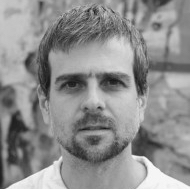
Gabriel is Director of Research at CNRS (National Scientific Research Centre – France), Professor of Sociology at Sciences Po, Centre for European Studies and Comparative Politics. He is also a researcher at the CEBRAP, invited scholar and visiting Professor at University of Oxford (2019), Humboldt University (Berlin – 2018), CIESAS (México – 2017), Sciences Po (Paris – 2013). He obtained his PhD in Social Sciences (2008) at the State University of Campinas (UNICAMP), with a collaborative period at the Ecole des Hautes Etudes en Sciences Sociales (EHESS). Currently researches criminal groups and illegal markets in Brazil, based on previous work on everyday social/political dynamics in urban outskirts, focusing on collective action, marginalized groups and “the criminal world” in Sao Paulo. Author of The Entangled City: Crime as Urban Fabric in São Paulo (Manchester University Press 2020) and Stolen Cars: A Journey through São Paulo’s Urban Conflict (Wiley 2022).
MC09 accepts abstracts of approximately 1000 words (deadline December 16 2024). If your abstract is accepted, you will be asked (but not required) to submit a full paper prior to the conference in Montreal (9-12 July 2025). The mini-conference organizers will be in touch about deadlines and specifications.
MC09 will organize one virtual session during the virtual conference days (1-3 July 2025), as well as one hybrid session during the on-site conference (9-12 July 2025).
Submissions can be made through the usual process, details here: https://sase.org/event/2025-montreal/#submission-guidelines
Call for papers
Illegal markets are spaces for the exchange of goods and services that arise as a result of legal definitions created by governments and enforced (or not) by states. Illegal markets also have owners and workers, who relate to each other through informal and sometimes violent regulations. Illegal markets would not exist if governments did not regulate to keep certain practices or exchanges “out of society”. However, this does not mean that illegal exchanges take place outside of society, but rather that such exchanges are made possible through complex processes of inclusion and exclusion of practices, commodities, people, and territories. Illegal markets have become globalized precisely by their porosity in relation to official markets, logistics and capacity to attract workers worldwide.
The third edition of our mini-conference on illegal markets at the SASE annual conference seeks to highlight the multiple processes of inclusion and exclusion that enable the emergence and functioning of arenas for the exchange of goods and services that are prohibited by law.
Our mini-conference will focus on inclusion/exclusion mechanisms that involve governments, intermediaries/brokers, organizations, and territories. We are interested in analyzing how social exclusion, whether based on economic inequality, ethnic-racial discrimination, or geographic isolation, contributes to the growth and persistence of illegal markets. We want to analyze how these markets exploit or perpetuate existing social and political inequalities. The analysis of illegal markets and exclusion should also consider how illegal markets exploit marginalized groups, including their roles as consumers, workers, or intermediaries. We want to discuss the social and economic pressures that drive these populations into illegal activities and their impact on community well-being. Finally, we are interested in proposals that address the processes of illegalization of specific commodities that exclude them from forma economies and create incentives for the emergence of illegal markets.
First, illegal markets can be brought into the formal economy through regulatory processes that tend to “legalize” the exchange of illegal commodities. This is particularly relevant today in the context of illegal drugs. Second, some illegal markets function thanks to groups, networks, or organizations that draw people into the market either through voluntary membership or through extortion. Third, illicit markets are social spaces where modes of inclusion, such as community membership or participation in the exploitation of certain resources, are contested.
Finally, our mini-conference welcomes proposals that highlight the various mechanisms that facilitate processes of inclusion or exclusion: government policies, corruption, manipulation of law enforcement, technological tools such as platforms and payments, actors operating as brokers or organizations, to name a few.
MC10 with Network B: Socio-economic roots of international inequality and marginalization: theory, comparison and case studies of dependency in neoliberal capitalism
detailed info Samantha Ashman
Samantha Ashman

Sam Ashman is Associate Professor in the School of Economics at the University of Johannesburg, and a research associate at the Southern Centre for Inequality Studies at the University of the Witwatersrand in South Africa. She has published extensively on the impact of (uneven) globalization, neo-liberalization, and financialization. The regional focus of her work is southern and South Africa. Work to date has particularly examined the role of finance and financialization in South Africa’s post-apartheid political economy and its role as a barrier to broader structural change and more broad based socio-economic development. She is currently working on political economy, industrial policy, and energy transitions in southern Africa, including but not limited to the emerging green hydrogen economy.
 Pedro Paulo Zahluth Bastos
Pedro Paulo Zahluth Bastos

Pedro Paulo Zahluth Bastos is an Associate Professor at the Institute of Economics, University of Campinas (UNICAMP – Brazil), where he has taught since 2002 and currently runs the Economic History Center. He is the former President of the Brazilian Society of Economic History (ABPHE, 2009-2011), head of the Department of Political Economy and Economic History at UNICAMP (2008-2012), and of the Center for Economic Outlook and Policy Research (CECON-Unicamp, 2022-2024). He was a visiting scholar at UC Berkeley (2017-2018) and has written widely on the political economy of Brazil from a comparative perspective, as well as on imperialism and dependency. His publications include four books, 48 journal articles, 31 chapters, and hundreds of op-eds. The University of Campinas is ranked as the second university in Brazil, as well as in Latin America and the Caribbean, according to the 2024 Times Higher Education World University Rankings.
 Aline Miglioli
Aline Miglioli

Aline Miglioli is an academic and researcher with a focus on economic structures, territorial inequalities, and housing markets in Latin America, particularly Cuba and Brazil. She holds a position at the Institute of Economics at Unicamp and has contributed to multiple research projects examining capitalist dynamics, international labor divisions, and the role of the automotive industry in global economic systems. Her work often integrates Marxist theory and dependency theories, and she actively fosters scholarly discussions on Latin American economies. Aline also contributes to the editorial board of the Revista Fim do Mundo.
 Alfredo Saad Filho
Alfredo Saad Filho

Alfredo Saad Filho is Professor of International Relations at Queen’s University Belfast, Distinguished Visiting Professor at the University of Johannesburg (South Africa), Visiting Professor at LUT University (Finland), Visiting Professor at Università degli Studi della Campania ‘Luigi Vanvitelli’ (Italy), Senior Associate Researcher at the University of Brasília (Brazil) and Professorial Research Associate at SOAS University of London (UK). He was a Senior Economic Affairs Officer at the United Nations Conference on Trade and Development (UNCTAD) in Geneva. He has taught in universities and research institutions in Belgium, Brazil, Canada, China, Finland, Germany, Italy, Japan, Mozambique, South Africa, Switzerland and the UK. His publications include 18 books, 80 journal articles, 60 book chapters, and 30 reports for the UN and other international agencies. His most recent books include The Age of Crisis: Neoliberalism, the Collapse of Democracy, and the Pandemic (London: PalgraveMacmillan, 2022) and Progressive Policies for Economic Development: Economic Diversification and Social Inclusion after Climate Change (London: Routledge, 2022).
MC10 accepts abstracts of approximately 1000 words (deadline December 16 2024). If your abstract is accepted, you will be asked (but not required) to submit a full paper prior to the conference in Montreal (9-12 July 2025). The mini-conference organizers will be in touch about deadlines and specifications.
MC10 will organize one virtual session during the virtual conference days (1-3 July 2025), as well as one hybrid session during the on-site conference (9-12 July 2025).
Submissions can be made through the usual process, details here: https://sase.org/event/2025-montreal/#submission-guidelines
Call for papers
The 36th SASE Conference has encouraged us to consider dignified and sustainable lives beyond neoliberalism. The 37th Sase Conference now invites us to think about the frontiers of solidarity, belonging, exclusion, and discrimination in the contemporary world. As in Limerick, our aim remains to explore the structural socio-economic roots of inequalities and marginalizations that shape social life from a specific perspective: how neoliberal capitalism has modified and is modifying relations between the Global North and South and, in particular, the modes of development and labor relations in dependent capitalisms, in dialogue with the original form of “socioeconomics,” i.e., the Marxist tradition.
In line with the theme of the 37th SASE Conference, a critical reassessment of this tradition is essential, as the First International not only placed class identity at the core of the workers’ struggle but also emphasized international solidarity as both its method and goal. Marx understood that the global unity of workers was vital to dismantling capitalism and the national hierarchies it produced. However, this vision relied on the success of a unified working class across nations— particularly in the case of Irish and English workers. Marx recognized that racism, like the super-exploitation of the Irish, fractured this solidarity by fostering divisions within the working class, legitimizing lower wages, and creating false communities of race and nation that aligned workers with capitalists. For Marx, the fight against capitalism was inseparable from the struggle against racism, and he argued that a socialist revolution was impossible without addressing the oppression of Irish workers and their right to self-determination. Many traditions of analysis on national, ethnic-racial, and gender oppressions overlook their relationship to capitalism and its transformations, often rejecting Marxism as ‘class reductionism.’ However, Black, feminist, and anti-colonial Marxism link these oppressions to class domination and labor exploitation. Investigating how global capitalism shapes inequality and marginalization across nations is essential (Ashman, 2023).
Therefore, in responding to the call to rethink the determination of the boundaries of solidarity, belonging, exclusion, and discrimination in the contemporary world, we are interested in this mini-conference to assess the potential and limits of the promise of capitalist development in dependent areas. The concepts of uneven and combined development and dependency are essential to investigate the socio-economic roots of international inequality and marginalization.
The two concepts have similar processes as objects of analysis, although they emphasize different angles of vision. Leon Trotsky proposed the concept of uneven and combined development, alluding initially to the inductive effect on modernizing political action led by pre-capitalist ruling classes generated by the perception of military vulnerability associated with economic backwardness. Without capitalist modernization, economic backwardness would reproduce the military vulnerability, requiring modernizing leaps led by states carrying fragile national bourgeoisies incapable of leading their nations. The threat posed by the imperial projection of the advanced capitalist states would have to be neutralized by resorting to imported capital and technologies (the advantages of backwardness) to accelerate local capitalist modernization. Thus, Trotsky implicitly assumes that inter-imperialist competition is a condition for the success of the modernizing leap. In other words, economic imperialism could be used to protect the backward state from the threat of annexation of all or part of its territory by a more advanced capitalist power, provided that the alliance with other empires makes the local modernizing effort viable in time to face the military threat.
However, once started, this development trajectory would not repeat the path of original capitalism. It would be unequal and combined, not only because it would connect in a certain way with international inequality, but because it would mix heterogeneous social relations and technologies in the various branches and regions of the national territory as if different and unequal historical times were combined in the same space, a circumstance that Trotsky considered ideal for connecting a bourgeois revolution and a socialist revolution in a “permanent revolution.” Later, many Marxist and non-Marxist authors used the concept, sometimes in a veiled way, to understand the specific and unequal trajectories of capitalist development of various peripheral, backward, and dependent social formations.
The concept of dependency, in turn, was proposed in Comintern documents to designate states, such as China, where a comprador bourgeoisie ensured the political and institutional conditions for imperialist economic domination from within formally independent states. From the 1960s onwards, it was mobilized by Latin American and African intellectuals to understand different capitalist models of uneven, combined, and dependent development, in which imperialist projection involved various forms of political influence and direct foreign investment, depending on the structure of each economy and its insertion into world capitalism. With each historical change in the forms of imperialist projection and internationalization of capital, dependency analysts identified new forms of dependency, taking as their angle of vision the different dependent formations in which foreign capital was integrated in an unequal and combined way.
How has neoliberalism changed dependency relations? How is the growing commercial and technological rivalry between the United States and China reversing neoliberal integration and impacting the different dependent capitalist regions? What are the economic and political criteria for comparing different situations of dependency? How do these situations express capitalism’s uneven and combined development in the world? How do the dynamics of global capitalism, its structural changes, and particular national histories interact? What is the relative importance of competition between capitalist companies and states at the center of the system and their movement of economic expansion and projection of power towards the peripheries, on the one hand, and local structures and the policies of the peripheral states, on the other, in shaping the different fates of the various dependent capitalisms? How does this vector of forces affect inequality and marginalization in the different regions? How does this impact relate to the boundaries of belonging and exclusion, solidarity, and discrimination in the contemporary world?
The mini-conference aims to bring together authors who risk answering these questions – and proposing new pertinent questions – at different levels of analysis, whether at the theoretical-abstract level, in case studies, or in literature surveys, contributing to future interpretative syntheses.
MC11: Inclusive Solidarities in Geoeconomic Times? Connecting Global and National Capitalisms
detailed info Fulya Apaydin
Fulya Apaydin

Fulya Apaydin is an Associate Professor at Institut Barcelona d’Estudis Internacionals (IBEI), Spain. Her work is situated at the intersection of comparative politics and international studies with a particular emphasis on the political economy of development. Broadly, she is interested in how investment policies across emerging economies are transformed in face of global pressures, and how political actors respond to these challenges at the local and national levels. She is currently focused on two interrelated lines of research: a first project unpacks the rise of private debt regimes in the Global South, explaining cross-national variations in the governance of credit allocation. A second project examines the causes and consequences of the new space race as part of industrial policy in the 21st century. Fulya holds a PhD from Brown University. Previously, she was a visiting researcher at the Princeton Institute for International and Regional Studies and the Max Planck Institute for the Study of Societies. Her work has been published in scholarly journals such as World Development, Regulation and Governance, Socio-economic Review, Review of International Political Economy, and Competition & Change, among others. She is the author of Technology, Institutions and Labor: Manufacturing Automobiles in Argentina and Turkey (Palgrave, 2018)
photo © IBEI
 Milan Babic
Milan Babic

Milan Babic is Associate Professor in Political Economy at the Political Science Department at the University of Amsterdam and PI of the DECARB project. His work deals with the transformations of the global political economy towards a geoeconomic global order; the political economy of decarbonization; and state-led investment. His latest book is The Rise of State Capital (Agenda 2023).
 Arie Krampf
Arie Krampf

Arie Krampf is senior lecturer at the School for Government and Society at the Academic College of Tel Aviv Yaffo and a lecturer at Hebrew University. Arie holds a PhD. from Cohn Institute for the History and Philosophy of Science, Tel Aviv University. He was a postdoc at “The KFG The Transformative Power of Europe” at Free University Berlin, the Max Planck Institute for the History of Science, Berlin, and the Davis Institute for International Studies at the Hebrew University, Jerusalem. Arie has published in top-ranked journals such as International Studies Quarterly, Journal of Institutional Economics, Journal of European Integration, Israel Studies, Israel Affairs, Science in context and others. Arie is a member in the board of the Israeli Association for International Studies (IAIS) and a member of the board the Israeli Association for the Study of European Integration (IASEI).
 Andreas Nölke
Andreas Nölke

Dr. Andreas Nölke is Professor of Political Science at Goethe University (Frankfurt) and Senior Researcher at the Leibniz Institute for Financial Research SAFE. Before joining Goethe University, he has taught at the universities of Konstanz, Leipzig, Amsterdam and Utrecht. His main research areas are at the intersection of comparative and international political economy, including the political economy of emerging economies, the political dimensions of financialization, the institutions of the German export model, the politics of European economic (dis-)integration and the political economy of populism. He has published in journals such as the Review of International Political Economy, New Political Economy, World Politics, Business and Politics, International Politics, Competition and Change, the European Journal of International Relations, Critical Perspectives on International Business, the Review of African Political Economy, the Socio-Economic Review, Environment and Planning and the Journal of Common Market Studies. Andreas also served as consultant in the field of development cooperation, mainly for the German Agency for International Cooperation (GIZ), but also for the European Commission and the World Bank.
 Judit Ricz
Judit Ricz
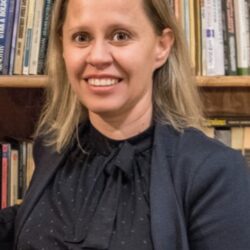
Judit Ricz is an Associate Professor at the Department of World Economy, Institute of Global Studies, Corvinus University of Budapest and Head of Research Group on Development Economics at the Institute of World Economics, Centre for Economic and Regional Studies in Budapest, Hungary. Her work lies at the intersection of development studies, international political economy and comparative capitalism research. She holds a PhD in Economics from University of Debrecen, and conducted post-doctoral research at the Hungarian Academy of Sciences on developmental states. More recently her research focuses on analysing different forms of state capitalism, illiberalism and new industrial policies in non-hegemonic powers (incl. the Central Eastern European region). She has co-edited several volumes in the International Political Economy Series by Palgrave and her work has been published in scholarly journals such as Competition & Change, Review of Evolutionary Political Economy, New Perspectives, and Society and Economy In Central and Eastern Europe, among others.
 Merve Sancak
Merve Sancak

Dr Merve Sancak is a Lecturer (Assistant Professor) at the Institute for International Management at Loughborough University London. Her research sits at the intersection of comparative political economy, international political economy, and economic sociology. She is interested in understanding how national and international political and economic dynamics intersect and affect economic activity, and particularly the role of the state and national politics in mediating the impact of global dynamics. Her current work investigates the international linkages of labour markets in late industrialising countries, and the implications of this for employment relations. Her research has been funded by British Academy, Global Development Network, Cambridge Political Economy Society, and the Mexican Agency for International Development. Her recent book Global Production, National Institutions, and Skill Formation (2022) was published Oxford University Press. Her articles have been published by Review of International Political Economy, Competition & Change, and Global Networks. She holds a PhD in Economic Sociology from the University of Cambridge.
MC11 accepts abstracts of approximately 1000 words (deadline December 16 2024). If your abstract is accepted, you will be asked (but not required) to submit a full paper prior to the conference in Montreal (9-12 July 2025). The mini-conference organizers will be in touch about deadlines and specifications.
MC11 will organize one virtual session during the virtual conference days (1-3 July 2025), as well as one hybrid session during the on-site conference (9-12 July 2025).
Submissions can be made through the usual process, details here: https://sase.org/event/2025-montreal/#submission-guidelines
Call for papers
In an era marked by deepening divisions, both within and across national borders, the concept of solidarity has gained renewed importance. The 2025 Annual Meeting of the Society for the Study of Socio-Economics (SASE), themed “Inclusive Solidarities: Reimagining Boundaries in Divided Times,” offers a timely platform to explore the changing dynamics of solidarity in the global economy. In line with this focus, this year, the “Connecting Global Capitalism and National Capitalisms” Mini-Conference invites contributions about how our core theme about the linkage between global and national capitalism can help to understand the grievances caused by the interaction between global capitalism and national capitalisms, the impact of these dynamics on the responses to the grievances, and the reimagination of boundaries that transforms and shapes emerging forms of solidarity. We especially welcome proposals that explore the relationship between these dimensions through bridging the fields of Comparative Political Economy (CPE) and International Political Economy (IPE).
For the community of scholars in Socio-Economics, any systematic study of the economic and political aspects of a contemporary capitalism and its outcomes requires a deeper understanding of the interactions and linkages between International Political Economy (IPE) and Comparative Political Economy (CPE). International organisations, institutions, regimes, and structures–which are usually studied by IPE scholars—are affected and shaped by domestic actors and social movements; but at the same time, they affect and shape domestic socio-economic regimes and political responses to those regimes. This is also true when understanding the grievances of different groups, and how these groups materialise their grievances, such as through creating different forms of solidarities. Therefore, connecting the IPE and CPE approaches is essential both to understanding the causes of grievances, and the forms of solidarity developed to address those grievances, and their inclusivity. Similarly, engaging in these debates calls for an approach that connects the dots between micro, meso and macro levels of analysis for a comprehensive understanding about these grievances and the responses to them.
Building on our previous mini-conferences which have examined the interaction between global and national capitalisms across the Global South and beyond, this year’s mini-conference will invite papers that explore the ways in which global political economic structures and national policies can create, reinforce or challenge grievances and divisions, and how solidarity dynamics are affected vis-à-vis these changes. By bringing together scholars who work at the intersection of CPE and IPE, the mini-conference will aim to:
- Examine the interaction between national and global economic systems: This includes the impact of global financial flows on national economies, the role of international trade agreements, and the influence of multinational corporations on domestic labour markets, social policies, and the role of the state.
- Analyse the role of emerging economies: We are particularly interested in studies that focus on late-industrialising countries in the Global South, examining how these nations navigate their subordinate positions in the global economy while striving to foster economic growth and social solidarity.
- Investigate the impact of social movements on economic policies and vice versa: Papers that explore the role of labour unions, grassroots organizations, and transnational advocacy networks in shaping economic policies at both the national and international levels are highly encouraged
Potential paper topics
Based on the outline above, our mini-conference will invite papers addressing the following questions that align with the conference theme of this year:
- Grievances in an era of geoeconomic competition: How are the structural changes to global capitalism that emerge from intensified geoeconomic competition creating (new, intensified?) grievances on the national level? Who and what becomes marginalised as a result? Are capitalist varieties producing different grievances as a response to geoeconomic upheavals?
- Reimagining Political and Economic Boundaries: How are the boundaries of national and global economic systems being redefined in response to challenges such as climate change, rising inequality, and geopolitical shifts? What new forms of economic solidarity are emerging as a result?
- Social Movements and Economic Solidarity: How are labour and social movements organizing within and across borders to confront the grievances posed by the intersection of global capitalism and national capitalisms? What successes and obstacles have they encountered in their efforts to build more inclusive, transnational forms of solidarity?
- New Responses to old Grievances: How are national governments and institutions responding to the pressures stemming from geoeconomic competition? How are these responses linked to their geoeconomic concerns? How are they promoting or constraining the new forms of social movements? What strategies are they adopting to promote (or reduce) social cohesion and economic inclusivity, particularly in the face of rising populism, illiberalism and nationalism in geoeconomic times? How are their international linkages shaping these strategies?
- Global Responses to Grievances: How do multinational corporations and financial actors navigate and potentially exacerbate global divisions? How do the supranational institutions respond to the grievances? What role do they play in either supporting or undermining existing and new forms of solidarity?
- The Future of Social Welfare in a Globalised Economy: How are social welfare policies evolving in response to the pressures of global capitalism? What new models of social protection are emerging to address the challenges of economic globalization?
- The Impact of Global Financial Flows on National Economies: How do global financial markets influence national economic policies and social cohesion? What role do international financial institutions play in either exacerbating or mitigating economic divisions?
We expect our mini-conference to provide a vital platform for scholars to explore these and other related questions at the intersection of comparative and international political economy. By bringing together diverse perspectives and cutting-edge research, this initiative will contribute to an interdisciplinary understanding of how global and national economic systems can be reimagined to foster more inclusive and solidaristic societies. Building on the success of our previous mini-conferences organized as part of the SASE Annual Meetings in the past three years, we look forward to a stimulating exchange of ideas and to the development of new insights that will inform both academic research and policy-making in the years to come.
MC12 with Network I: First INDEP conference: Democratic Economic Planning for the Real World
detailed info Sophie Elias-Pinsonnault
Sophie Elias-Pinsonnault

Sophie Elias-Pinsonnault is a PhD student in Economics at the University of Massachusetts Amherst and an associate doctoral candidate in the EPOG doctoral network. Her research interests include ecological sustainability, economic planning, social change, and postcapitalism.
 Christoph Sorg
Christoph Sorg

Christoph Sorg is a social scientist at Humboldt University Berlin. He has a general interest in social theory, economic sociology and political economy, and a particular interest in theories of capitalism and postcapitalism, social movements and economic planning.
 Simon Tremblay-Pepin
Simon Tremblay-Pepin

Simon Tremblay-Pepin is a professor at the Elisabeth-Bruyère School of Social Innovation at Saint Paul University. His main research topics are postcapitalist political economy, public finance and media critique.
 Leone Castar
Leone Castar

Leone Castar is a PhD student in physics at Clemson University. His interests include political economy and econophysics, agent modelling, in-kind democratic economic planning, and postcapitalist social infrastructure.
 Julia Witte Zimmerman
Julia Witte Zimmerman

Julia Witte Zimmerman is a PhD candidate in Complex Systems & Data Science in the Computational Story and Computational Ethics Labs at the University of Vermont’s Complex Systems Center. Her research interests include LLMs for linguistics, how systems can change what is salient, and the inner workings of stories and language.
MC12 accepts abstracts of approximately 1000 words (deadline December 16 2024). If your abstract is accepted, you will be asked (but not required) to submit a full paper prior to the conference in Montreal (9-12 July 2025). The mini-conference organizers will be in touch about deadlines and specifications.
MC12 will organize one virtual session during the virtual conference days (1-3 July 2025), as well as one hybrid session during the on-site conference (9-12 July 2025).
Submissions can be made through the usual process, details here: https://sase.org/event/2025-montreal/#submission-guidelines
Call for papers
In the face of capitalism’s striking failure to confront the contemporary challenges raised by the poly-crisis of war, ecological collapse and rising inequalities, democratic economic planning (DEP) has recently gained increasing attention, both from the academic world and from social change practitioners (rank-and-file, militants, organizers, and leaders of unions and social movements, members of political parties and NGOs, members of prefigurative initiatives, etc.). It presents itself as an alternative economic system based on socialization and deliberation, aiming to overcome both capitalism and the limits of Soviet-style managerial planning. Although directly tied to political imaginaries, it focuses on economic questions regarding the organization of production, allocation, distribution, and coordination in a way that ensures collective subsistence within planetary boundaries. Proponents of DEP suggest that organizing our economies on the principles of self-management at the local scale and collective decision-making at higher scales is the most promising proposal for ensuring sustainability and social justice.
This mini-conference aims to bring together a new generation of researchers and practitioners interested in democratic economic planning from a postcapitalist perspective. It is the first conference organized by the International Network for Democratic Economic Planning (INDEP), a network launched in July 2024, bringing together more than 200 members from more than 15 countries under a unified web of knowledge exchange and collaboration. The two-day mini-conference will be part of the SASE Network I: Alternatives to Capitalism and will be held during the SASE conference in Montréal, Québec, Canada from July 9 to 12.
This mini-conference will be themed “Democratic Economic Planning for the Real World.”. Theoretical models of democratic economic planning (DEP) are often criticized on the basis that they seem abstract and removed from our day-to-day lives. This criticism is partly valid, but it often neglects the work done by activists worldwide who build spaces and projects where postcapitalist structures and practices are of central importance. Therefore, we wish to bring researchers and practitioners together to build a robust dialogue that enlightens and enriches everyone in this burgeoning space.
We are interested in receiving proposals about postcapitalist models, visions, and experiences. Proposals could be tailored to the following themes, but these are not mandatory. Every proposal related to economic planning and postcapitalist political economy will be considered.
- DEP on the ground: Experiences and tactics in building transformative pathways towards postcapitalism through struggles in the here and now
- Mapping and Strategizing the DEP ecosystem: What kinds of actors are out there? How do we enable and amplify the exchange of knowledge and resources? What are our next steps?
- From the workplace to the global economy: at what scales do we think about DEP and how do they interrelate?
- How can DEP help us see and meet environmental constraints?
- The technological backbone of DEP: software and hardware and their role in shaping postcapitalist information systems, infrastructure, and institutions
- Daily life and social reproduction in a democratically planned society
- How models of postcapitalism shape different visions of DEP
- From industrial logistics and integrated cloud infrastructures to worker-coops and libraries: what opportunities and risks are there for DEP from recent technological and organizational developments?
- Aesthetic representations of DEP: what strategic role do they play in popularizing visions of postcapitalism?
- How can DEP actively fight systems of oppression (colonialism, race, gender, class, etc.)?
- Rethinking notions of money, markets, ownership, work, and labor in postcapitalist systems
- The role of political systems: what political forms are necessary for a democratic postcapitalism? What role should the State play in such systems?
Scholars, practitioners and researchers outside the university should submit their proposals before December 16th, 2024 through the SASE submission webpage.
Funding
This mini-conference has been the subject of a Connection grant application to the Social Sciences and Humanities Research Council of Canada. Some presenters may be reimbursed for their participation, travel and accommodation expenses if this grant is awarded. The grant has not yet been attributed; hence, this possibility should not be taken for granted. Funding will be awarded in the following order of priority:
Graduate students or practitioners;
Post-docs;
Professors without financial support from their institution;
Professors with financial support from their institution.
MC13: Working time reduction: Rethinking work for a more balanced, just and sustainable socio- economic life
detailed info Lonnie Golden
Lonnie Golden

Lonnie Golden is a Professor of Economics and Labor & Human Resources at Penn State University, Abington College and affiliated with the Project for Middle Class Renewal at the University of Illinois. His research focuses on the determinants and consequences of working time and job quality–work hours mismatches, overtime and part-time work, work scheduling, workplace flexibility, 4-day workweeks and outcomes such as health, earnings disparities, happiness, productivity, work-life balance and time-use; and relevant policies such as the Fair Labor Standards Act and Fair Workweek regulations. He has co-edited a book, Working Time and published scholarly articles in leading academic journals such as Industrial Relations, Monthly Labor Review, Health Affairs, Cambridge Journal of Economics, etc.
 Juliet Schor
Juliet Schor

Juliet Schor is an economist and Professor of Sociology at Boston College. Since 2022 she has been a lead researcher for pathbreaking trials studying hundreds of companies instituting four day, thirty-two hour workweeks with five days’ pay. The research finds large improvements in well-being outcomes and success for the participating organizations. Her forthcoming book, Four Days a Week (HarperBusiness, 2025), details these findings.
Schor has been researching worktime since the 1980s and is the author of The Overworked American: the unexpected decline of leisure (Basic Books, 1992), which was a national bestseller. Schor has also researched sustainable consumption and the link between climate change and worktime, and, since 2011, the platform economy. A graduate of Wesleyan University, Schor received her Ph.D. in economics at the University of Massachusetts. Before joining Boston College, she taught at Harvard University for 17 years in the Department of Economics and later, the Committee on Degrees in Women’s Studies. Schor’s
other books include After the Gig: how the sharing economy got hijacked and how to win it back (California, 2020), Plenitude: the new economics of true wealth (Penguin Press 2010), Born to Buy: The Commercialized Child and the New Consumer Culture (Scribner 2004), and The Overspent American: Why We Want What We Don’t Need (Basic Books, 1998).
Schor is the recipient of numerous awards, and is the 2024 Honorary Fellow of the Society for the Advancement of Socio-Economics, and an Elected Fellow of the AAAS. Her work has been supported by the National Science Foundation, the MacArthur Foundation, the Sloan Foundation and the Russell Sage Foundation, among others. A frequent contributor to public discourse and media, Schor’s Ted talk on “the case for the four day week” has more than three million views.
 Julie Yen
Julie Yen

Julie Yen is an Assistant Professor of Management and Organizations at Boston University’s Questrom School of Business. Her research focuses on social impact and worker well-being in organizations, investigating how people and organizations pursue social objectives and implement reduced worktime and flexible work practices. Julie’s research draws on qualitative, inductive field research methods, such as in-depth interviews and ethnographic observation. She holds a PhD in Organizational Behavior from Harvard University and previously worked in the nonprofit and financial services sectors.
MC13 accepts abstracts of approximately 1000 words (deadline December 16 2024). If your abstract is accepted, you will be asked (but not required) to submit a full paper prior to the conference in Montreal (9-12 July 2025). The mini-conference organizers will be in touch about deadlines and specifications.
MC13 will organize one virtual session during the virtual conference days (1-3 July 2025), as well as one hybrid session during the on-site conference (9-12 July 2025).
Submissions can be made through the usual process, details here: https://sase.org/event/2025-montreal/#submission-guidelines
Call for papers
Reduced working time is likely to be a crucial component of the future of work, as technological
change and artificial intelligence disrupt previous labour regimes, and have raised the spectre of
widespread unemployment and social upheaval. The climate emergency demands new ways of
organizing and even thinking about work, while an increasingly diverse workforce challenges a
century-old model of the full-time, 5-day, 40-hour, inflexible workweek.
The current neoliberal capitalist system implicitly promises a redistribution of labour productivity
gains across the workforce in the form of shorter working hours and improved quality of working
life. Yet, these promises have rarely been realised and even less so in a universal or equitable
way. Corporate financialisation disproportionately reaps these productivity gains in ways that
lead to a further concentration of wealth, while continuously spreading casualisation and
precarisation in the labour market. The labour process of working time has long been subjected
to the neo-liberal logic that puts productivity gains and value creation over a sustainable, fair and
equitable working time. Could reduction of working time require a paradigm shift? Is this
currently underway, in the post-pandemic labour market? If so, how could this be re-imagined
and implemented? How would reduced work time affect, and how is it affected by, the current
organization of society, community and family?
In this mini-conference, we aim to bring together the latest cutting-edge scholarship on work
hours and work time reduction. The issue has received increasing recent attention from social
scientists, including economists, political scientists and sociologists—and now human resource
management—but there has been little cross-disciplinary exchange and dialogue. There is a need
now for both empirical evidence and re-conceptualization regarding the alternatives to current,
standard economic models and institutions. Such advances are needed in order to understand
the potential for worktime reduction to improve sustainability, well-being, dignity and solidarity
in contemporary economies.
The proposed panels will provide an opportunity to set out what we already know, how new
evidence is affecting scholars’ understanding of work time, and what future research agendas
should be. There is also a particular interest in theoretical papers that engage the worktime
reduction agenda with critical perspectives such as feminism, intersectionality, de-growth, and
the future of work discourse, including job quality. We welcome submissions from a range of
disciplines, including economics, sociology, gender studies, geography, economic history,
business, labour relations, and political science, among other fields. Both empirical and theoretical papers are encouraged. We also note, in light of the preference for under-
represented areas, that we have two heterodox economists on the organizing team (Golden and Schor).
Possible topics on working time reduction that submissions could explore are:
● Historical perspective: key contributions to the debate on working time reduction in a
historical context; the drivers and mechanisms of past working time changes and
reductions; their social determinants and consequences.
● Old and new inequalities: differences across workforces in whose hours are reduced and
differential impacts; gendered division of labour; differences across industries, regions
and countries; inequalities by gender, race, ethnicity, age/life-course, and their
intersections in working time practices and needs.
● Sustainability and well-being: the environmental impacts of the four-day week
compared to other WTR arrangements (e.g.: 6h/30h; optional schemes etc.); the
productivity/worktime nexus; working time, well-being and work-life balance;
motivations for shorter hours; working time reduction and community life.
● Economic feasibility: the impacts of shorter hours on organizational performance,
viability and sustainability.
● Political economy of working time reduction: analyses of the growing number of
legislative to reduce statutory workweeks; cross-national comparisons in the
implementation and effects of worktime reduction; employment effects of worktime
reduction; social and political actors driving change.
● Unions: collective bargaining efforts to reduce working time; analyses of variation across
industry, country, etc.; how working time reduction shapes efforts to build and sustain
solidarity within and across groups
● Artificial intelligence and the future of work: rethinking current economic models and
the social contract to achieve sustainable worktime reduction; proposals for policy
reforms; the role of technology and digitalization; new emerging employment and
working time models; the impact of algorithmic management and artificial intelligence.
● Implementation: exploring variation across different policy approaches; how the
conditionality of worktime reduction shapes implementation, experiences, and
outcomes; implementation successes, failures, challenges, and best practices.
● Failure cases: understanding why organizations stop or reverse worktime reduction
practices; how failure is defined and experienced by different actors; learn from the
growing body of longitudinal data from recent research.
● Research methods: exploring the variety of methods used to study worktime reduction
and enabling cross-pollination across approaches.
The topic of worktime reduction has clear links to the conference theme “Inclusive Solidarities:
Reimagining Boundaries in Divided Times.” Building solidarity across diverse groups of workers
and organizations will be necessary to reduce working time across the economy. Yet worktime
reduction also has the potential to exacerbate tensions and inequalities across groups—for








